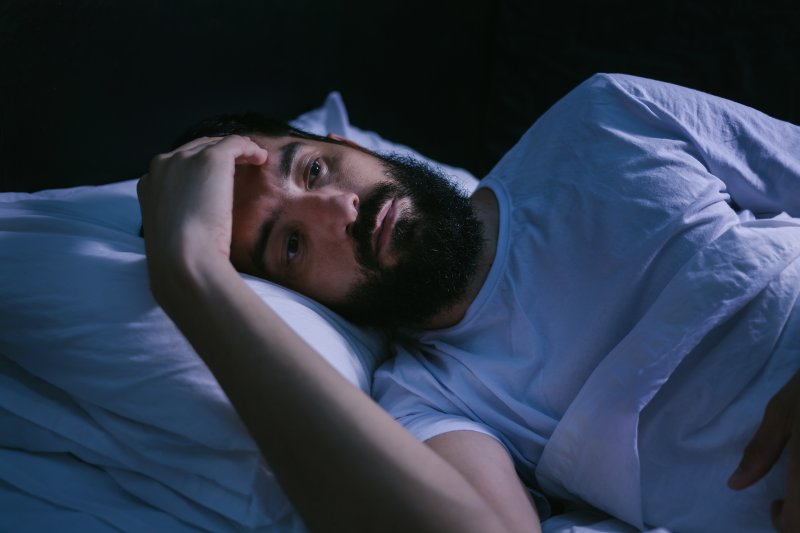Is Sleep Apnea in Richmond Causing Your Body to Age Faster?
July 9, 2019

Did you know that your body’s age can be measured two ways? There’s chronological age that counts how many years you’ve been alive, but there’s also biological age, which is based on how well your body is functioning. If a sleep disorder is keeping you up at night, it could accelerate your biological age, which can easily shave a few years off your lifespan. Here’s why sleep apnea in Richmond could be devastating for your health in the long run – and what you can do about it.
How Does Sleep Apnea Affect Aging?
A patient with sleep apnea repeatedly stops breathing during the night; the brain will briefly wake the body up so that the normal airflow can resume. Because this happens quickly, you might not realize it’s even happening aside from occasionally waking up gasping for air.
While sleep apnea was already known to lead to life-threatening problems – increased risk of heart attack, excessive drowsiness that can cause traffic accidents – recent studies have found that it’s also been linked to accelerated epigenetic aging. This basically means that the DNA in your cells is aging faster than it’s supposed to. As a result, your cells die at a faster rate. And the quicker your cells die, the shorter your own lifespan becomes.
What Can I Do About Sleep Apnea?
The good news is that if sleep apnea is treated, the effects on your biological age can be reversed. The type of treatment you’ll need will depend on the exact cause of the disorder.
Airway dentistry is a useful tool for detecting sleep apnea. A dentist can ask you about your symptoms and check your mouth for possible issues that could interrupt your breathing; for example, your tongue or other soft tissues might relax while you’re asleep and block the airway. Usually, you’ll need to undergo a sleep study to confirm that you have the condition.
Once you’ve been diagnosed, you can get the treatment you need for a better night’s rest. Most dentists favor oral appliance therapy. The appliance will adjust your mouth in a way that will keep the airway open; for many patients, this is far more convenient and far less noisy than using a CPAP machine.
Sometimes you can also fight back against sleep apnea by making a few lifestyle changes. Losing weight, sleeping on your side and cutting down on alcohol are all things that can help.
If you think you’re suffering from sleep apnea – or if others have told you that you snore or gasp for air during the night – reach out to a dentist right away. Getting a good night’s sleep may be the key to saving your life!
About the Author
Dr. Vong was born and raised in Texas and is passionate about serving her community, participating in volunteer projects like Give Kids a Smile and Healthcare for Homeless. At VL Dental in Richmond, she brings her patients a wide variety of dental services, including airway dentistry for patients suffering from sleep apnea. To schedule an appointment, visit her website or call (281) 239-7200.
No Comments
No comments yet.
RSS feed for comments on this post.
Sorry, the comment form is closed at this time.

